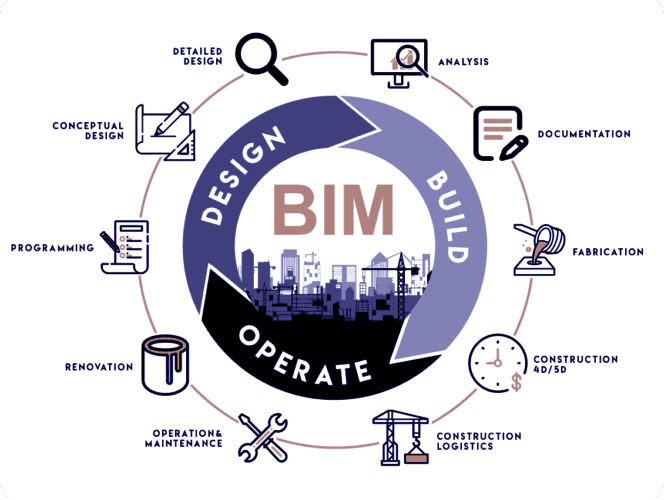
VR Based Construction Services: Revolutionizing the Building Industry
In the dynamic realm of construction, innovation is the cornerstone of progress. VR Based Construction Services emerge as a beacon of technological advancement, redefining how structures come to life.
Virtual Reality (VR) is not just a buzzword; it is a catalyst for a revolution in construction. VR-Based Construction Services empower stakeholders to visualize projects comprehensively. From architectural nuances to spatial relationships, VR offers a lifelike preview that transcends traditional blueprints.
Enhancing Collaboration through Immersive Experiences
Fostering Seamless Communication Among Project Stakeholders
In the intricate dance of construction, effective communication is paramount. VR Based Construction Services act as a unifying force, enabling architects, engineers, and clients to immerse themselves in a shared vision. This newfound collaboration cultivates a synergy that propels projects towards success.
Cost-Efficiency and Risk Mitigation: The VR Advantage
Navigating Budgets and Minimizing Risks with VR Technology
In the construction landscape, cost overruns and unforeseen risks are common challenges. VR Based Construction Services act as a preemptive measure, allowing stakeholders to identify potential issues before breaking ground. This not only reduces costs but also ensures a smoother construction journey.
Why choose VR based Construction services?
Enhanced Visualization and Design Collaboration:
VR-based construction services allow architects, engineers, and clients to immerse themselves in a three-dimensional virtual environment, facilitating better visualization of construction plans. This leads to more effective collaboration during the design phase, reducing misunderstandings and enhancing the overall quality of the project.
Real-Time Project Monitoring:
VR technology enables real-time monitoring of construction projects. Stakeholders can virtually "walk through" the construction site from anywhere in the world, gaining insights into progress, identifying potential issues, and making informed decisions without being physically present at the site.
Virtual Safety Training:
VR offers a safe and controlled environment for training construction workers on safety protocols. Simulated scenarios allow workers to practice safety measures and emergency procedures, reducing on-site accidents and injuries. This immersive training approach contributes to a safer construction environment.
Efficient Project Planning and Coordination:
Virtual reality streamlines project planning by creating a shared virtual space for all stakeholders. This allows for better coordination between different teams, minimizing delays and ensuring that everyone involved in the project is on the same page.
Remote Client Presentations:
VR-based construction services facilitate virtual client presentations, eliminating the need for clients to travel to the construction site or the office. This not only saves time and resources but also enhances the client's understanding of the project by providing an immersive experience.
Material and Design Prototyping:
Virtual reality allows for the creation of detailed prototypes of construction materials and designs. This enables architects and engineers to assess the physical and aesthetic aspects of materials and designs in a simulated environment before actual implementation, reducing the risk of costly revisions.
Environmental Impact Assessment:
VR technology can be used to simulate the environmental impact of construction projects. This includes assessing factors such as sunlight exposure, wind patterns, and noise levels. Such simulations aid in making informed decisions to minimize the ecological footprint of construction activities.
Augmented Reality Integration for On-Site Guidance:
Combining VR with augmented reality (AR) provides on-site workers with real-time guidance and information. AR overlays digital data onto the physical construction site, helping workers follow plans, locate utilities, and execute tasks more efficiently.
Remote Inspections and Quality Control:
VR-based construction services enable remote inspections of construction sites, allowing inspectors to virtually assess the quality of workmanship and compliance with regulations. This not only speeds up the inspection process but also ensures a more thorough and consistent evaluation.
Data-Driven Decision-Making:
VR construction services generate valuable data throughout the project lifecycle. Analyzing this data provides insights into construction processes, helping project managers make data-driven decisions for better efficiency, cost-effectiveness, and overall project success.
How does VR contribute to safety in construction?
VR simulates construction environments, enabling safety training in a risk-free virtual space. This proactive approach reduces on-site accidents and enhances overall safety protocols.
What hardware and software are required for VR Based Construction Services?
Basic VR hardware, such as headsets and controllers, along with construction-specific software, is required. The market offers a variety of options to suit different project needs and scales.
Conclusion: Paving the Way for a VR-Infused Construction Future
As we bid adieu to traditional blueprints, VR Based Construction Services stand as the vanguard of a new era. Embrace the future where projects are visualized, collaborated upon, and executed in ways previously deemed impossible. The construction landscape is evolving, and VR is leading the way.
Get ready to build tomorrow, today. VR Based Construction Services – transforming visions into reality.

